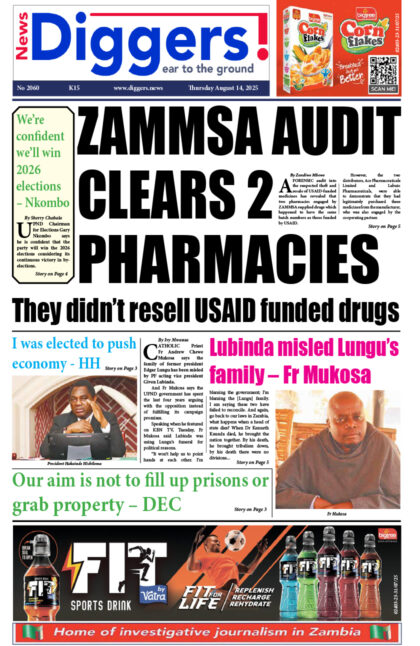Transport and Communications Minister Brian Mushimba says he is disappointed with the low compliance levels among truck and bus drivers to Statutory Instrument number 76 which prohibits travelling during the night.
But Mushimba says accidents by buses and trucks have reduced by 16 per cent and 17 per cent, respectively, since the SI was implemented in 2016.
Speaking during the Pan-African radio discussion programme in Lusaka yesterday, Mushimba noted that buses and trucks still pass through police checkpoints after 21:00 hours despite the laws barring them from doing so.
“In terms of compliance and enforcement, I have received information that when the SI was signed, compliance was very high, it gave us the results and the benefits that I have just alluded to. But as of late we have seen bus owners and drivers driving past 21:00 hours. I saw this for myself, I was in Sinazongwe officiating at Labour Day and we were coming back from Sinazongwe very late and I saw buses driving through Mazabuka, through Kafue coming to Lusaka. That was past 21:00 hours, and they were going through police checkpoints. This was very disappointing as government because we make this law and there are reasons we make these laws. So our friends from the police force help us to enforce the laws so that there is order,” Mushimba appealed.
He said government would ensure that there is sanity in the public transport sector.
“The government has sent a signal that we want to go a certain direction. The direction we want to go in public transportation is to bring more dignity in public transportation. Many of us that consume public transportation can attest to the fact that we have unruliness in public transportation. The equipment is not very good equipment, there are seats that are fabricated without standard, sometimes they are too high, when you go through a pothole, you hit yourself to the roof of the vehicle. The vehicle that you are in, ventilation is not just there, the ambiance is not what it should be, when you talk about drivers and conductors, sometimes, they shower you with unpalatable [language] for no reason at all. It’s that which we are trying to address,” Mushimba added.
“If we have the majority of our people consuming public transport, let’s apply our minds to ensure that they have products that can be dignified. We have rolled out many initiatives around public transportation. One of them is the SI 79, which speaks to increase the safety of the people on the roads. The challenge we found with this SI is that the Hiace buses, and these minibuses that have been imported and converted into buses, they are not meant to be transporting people, they are cargo vehicles. But these should have seat belts. What we are looking for, obviously, is that if someone wants to buy a bus to come and enter this space and be a public transporter, we want to incentivize them to buy a proper bus. So, it may be that we will put higher taxes on a ‘pano’ van compared to a Rosa because a Rosa has seat belts and all other necessities. So, we may lower the taxes on a Rosa and increase taxes on a ‘pano’ van. When we signed those SI’s we signed them in what we called [a] ‘stop gap’ measure because at the time, we were having a lot of deaths; on average ten deaths per day. There was a competition between buses and trucks and private vehicles, the picture was so gloomy that as government we couldn’t just look away.”
And Mushimba said accidents by buses and trucks have reduced by 16 per cent and 17 per cent, respectively, since the SI was implemented in 2016.
“When we signed that SI, including the other SI’s that we signed, we have seen the numbers start trending downwards. They are not trending as fast as we would want, but they are going downwards. As of December 2017, the accidents by buses have reduced by 16 per cent, that’s a good number. The deaths on our roads have reduced by 10 per cent; that’s a good number. Accidents by trucks have reduced by 17 per cent; those are good numbers. So, we can see that the interventions that government did has resulted in lives being saved. We want to do more, we also understand that these short-term measures are not sustainable, there is need for [a] long-term solution, but we want to do these medium-term solutions before we go to the long-term ones so that we don’t restrict people from driving during the night. We do not want to be disruptive to the flow of the economy,” said Mushimba.























